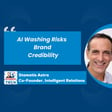
OpenAI Launches GPT-5 Amid User Backlash, Intel CEO Faces Resignation Calls, N-able Grows 9%
OpenAI has launched its latest AI model, GPT-5, which boasts significant advancements over its predecessor, GPT-4.0. CEO Sam Altman likens the impact of GPT-5 to the revolutionary introduction of the first iPhone with a retina display. The new model features enhanced capabilities, including dynamic reasoning, a larger context window, and the ability to switch between standard and reasoning modes for complex queries. Despite these improvements, user feedback has been mixed, with many expressing dissatisfaction and a preference for the more personable GPT-4.0, leading OpenAI to reintroduce the older model for users who desire it.
In addition to the advancements in AI, the podcast discusses the political turmoil surrounding Intel Corporation's CEO, Lip-Bu Tan. President Donald Trump has called for Tan's resignation due to his connections with Chinese technology firms, raising concerns about national security. Tan, who has only been in the role for five months, faces scrutiny as Intel deals with significant layoffs and strategic project cuts. The situation highlights the growing intersection of politics and business, particularly in the tech industry, where vendor stability is increasingly influenced by political factors.
The episode also covers N-able Inc., which reported a 9% year-over-year revenue growth, prompting the company to raise its full-year guidance. N-able is shifting its customer contracts from month-to-month to annual agreements, aiming to enhance profitability and stability. The company has also released a report indicating a dramatic increase in cyberattacks targeting small and medium-sized businesses, reflecting a shift in the perception of cybersecurity risks among these organizations. This highlights the urgent need for robust cybersecurity measures in an evolving threat landscape.
Lastly, the podcast addresses the operational challenges faced by managed service providers (MSPs) due to tool overload. A recent study reveals that many MSPs struggle with integrating multiple security tools, leading to alert fatigue and inefficiencies. The findings suggest that a unified cloud security platform could significantly improve data protection and response times. As the industry evolves, the need for streamlined solutions becomes increasingly critical for MSPs to effectively manage their clients' cybersecurity needs.
Three things to know today
00:00 GPT-5 Launches With Bigger Context, Smarter Routing, and Mixed Reviews From Users
07:32 Intel CEO Faces Presidential Resignation Demand Amid China Ties and Massive Layoffs
09:54 N-able Delivers 9% Growth, Pushes Long-Term Contracts Amid Rising SMB Cyberattacks
This is the Business of Tech.
Supported by: https://cometbackup.com/?utm_source=mspradio&utm_medium=podcast&utm_campaign=sponsorship
Tell us about a newsletter!https://bit.ly/biztechnewsletter
All our Sponsors: https://businessof.tech/sponsors/
Do you want the show on your podcast app or the written versions of the stories? Subscribe to the Business of Tech: https://www.businessof.tech/subscribe/
Looking for a link from the stories? The entire script of the show, with links to articles, are posted in each story on https://www.businessof.tech/
Support the show on Patreon: https://patreon.com/mspradio/
Want to be a guest on Business of Tech: Daily 10-Minute IT Services Insights? Send Dave Sobel a message on PodMatch, here: https://www.podmatch.com


















